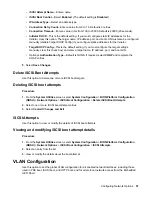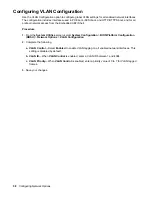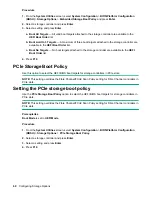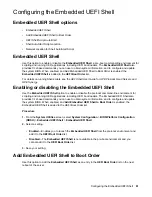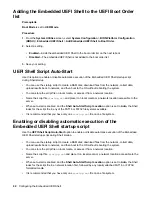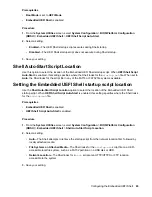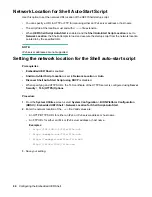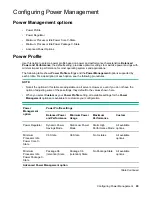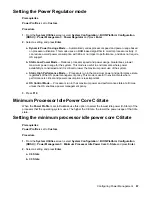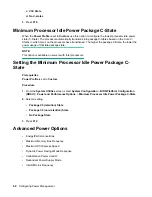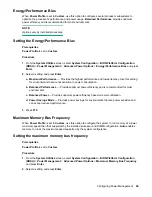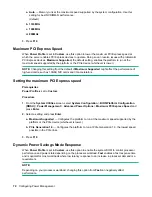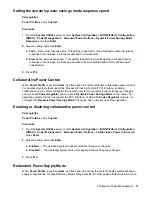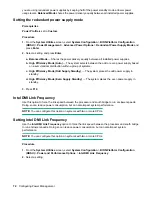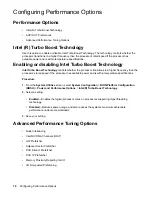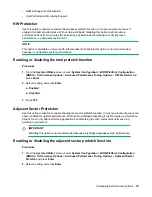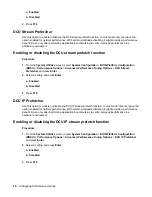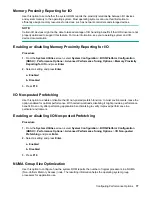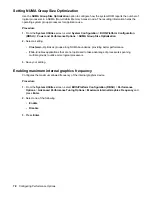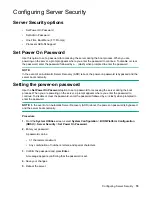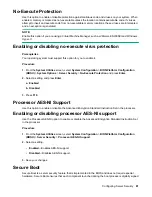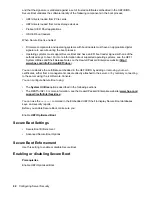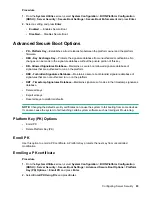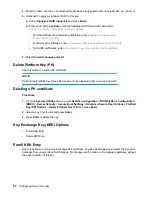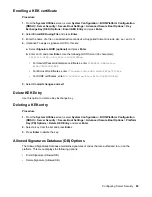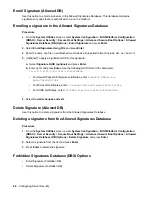
Setting the dynamic power savings mode response speed
Prerequisites
Power Profile
is set to
Custom
.
Procedure
1.
From the
System Utilities
screen, select
System Configuration
>
BIOS/Platform Configuration
(RBSU)
>
Power Management
>
Advanced Power Options
>
Dynamic Power Savings Mode
Response
and press
Enter
.
2.
Select a setting and press
Enter
.
a. Fast
— Sets a fast response time. This setting is optimal for most workloads where low latency
response to an increase in processor demand is a requirement.
b. Slow
Sets a slow response time. This setting is optimal for workloads where a longer latency
response to an increase in processing demand is an acceptable trade off for reduced power
consumption.
3.
Press
F10
.
Collaborative Power Control
When
Power Profile
is set to
Custom
, use this option to enable or disable collaborative power control.
For operating systems that support the Processor Clocking Control (PCC) interface, enabling
collaborative power control configures the operating system to request processor frequency changes,
even when the
Power Regulator
option is set to
Dynamic Power Savings Mode
on the server. For
operating systems that do not support the PCC Interface, or when the
Power Regulator
mode is not
configured for
Dynamic Power Savings Mode
, this option has no impact on system operation.
Enabling or disabling collaborative power control
Prerequisites
Power Profile
is set to
Custom
.
Procedure
1.
From the
System Utilities
screen, select
System Configuration
>
BIOS/Platform Configuration
(RBSU)
>
Power Management
>
Advanced Power Options
>
Collaborative Power Control
and
press
Enter
.
2.
Select a setting and press
Enter
.
a. Enabled
— The operating system requests processor frequency changes.
b. Disabled
— The operating system does not request processor frequency changes.
3.
Press
F10
.
Redundant Power Supply Mode
When
Power Profile
is set to
Custom
, use this option to set how the system handles redundant power
supply configurations. All High Efficiency Mode settings provide the most power efficient operation when
Configuring Power Management
71

